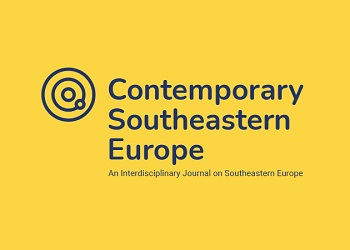Introduction: Balkan Precariat
Introduction: Balkan Precariat
Author(s): Ivana Bajić HajdukovićSubject(s): Anthropology, Editorial
Published by: Universität Graz
Summary/Abstract: This special issue of Contemporary Southeastern Europe highlights recent research in the social anthropology of three former Yugoslav countries, namely Bosnia-Herzegovina, Serbia and Macedonia.1 It represents a shift away from previous studies of the former Yugoslav region, which has focused mostly on the dissolution of the Socialist Federative Republic of Yugoslavia and ensuing wars.2 This issue points to the necessity of studying the Western Balkans from perspectives beyond the ‘war and nationalism’ paradigm. With its comparative approach, anthropology is probably the best of the social sciences for undertaking such an endeavour. Similarly to how Michael Herzfeld3 has shown that the geographically marginal position of Greece provided a platform from which to study European anxieties, the Western Balkans, as a European periphery whose ‘otherness’ is affirmed through its non-EU status, can serve as a laboratory for studying the workings of weak states with unregulated markets. Why go all the way to Africa, as the Comaroffs4 suggest, when the European periphery, exemplified in Bosnia, Macedonia and Serbia, represents a much nearer experimental playground for neoliberal capitalism? Not only do the Western Balkans offer an insight into post-socialist and post-war coping mechanisms, but they also serve as a mirror for the EU and its market policies in relation to non-EU countries. The effects of the financial crisis of 2008, argue the Comaroffs, were felt much more strongly in places
Journal: Contemporary Southeastern Europe
- Issue Year: 1/2014
- Issue No: 2
- Page Range: 1-6
- Page Count: 6
- Language: English

